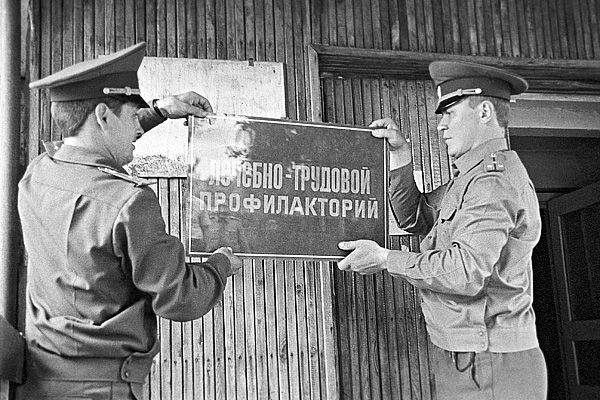Police violently throw people in LTPs: Evidence by Minsk resident
The Human Rights Center “Viasna” received a complaint from a resident of Minsk who told about the artful ways in which police officers seem to be following a plan for filling the activity labor centers of Belarus (so called LTPs).
“It all happened this month. They grabbed after work right at the entrance to the enterprise in front of my colleagues. When they saw a phone in my hands they began to wring my hands behind my back, very high – it was painful. Meanwhile, I did resist. The mobile phone was taken away, and when I asked to return it to me, they said they would not let me make a call, so that no one knew where I was. There were threats to handcuff me and all my colleagues heard it.
As it turned out, before my detention they called my boss to find out when I finished work. Explaining nothing, fraudulently, with the words “it is a mere formality, but you just do not tell him anything”... And now, they were waiting for me at the exit after work.
After the detention, I was taken to the drunk tank and they said “Now we’ll write another violation report”. They brought me in, asked to breathe into a tube – it showed nothing. After that, they took me to a police station that had no signs, nothing at all, just like an apartment. There, they put me on an iron bench, handcuffed me to it and left. In two or three hours, late in the afternoon, they brought another man. After some time, they brought the third. They took off the handcuffs when I asked for it.
The three of us were held in the station all night until the morning. We could not sleep very well, as one man was rowdy, so they constantly entered the room to use physical force. Not against all, I was only threatened.
Incidentally, in this room, where we were kept, there was alcohol – wine in liter bags. And I knew that I was going to be taken for a medical examination, so I did not drink it. Other detainees drank it, so the next day, when we were taken for examination, it was much easier for the commission to diagnose them. Also, another detainee, who earlier was in an LTP, said that in another police department the policemen wined them in front of the commission.
The commission where we were taken in the morning war a pure formality. That is, the doctors are asked if there were any health complaints, spinal or head injuries. When I said that there might be injuries, they asked: “Are these the injuries that can help you go to hospital?” When I said that I did not have these, they said that everything was fine. I was diagnosed with “moderate alcohol dependence” and told that my health problems would be solved in the LTP. After the medical examination, which took place in Tarkhanau Street, I was again taken to the police station, where I was held until the evening.
In the evening, I was taken to court. All this time I was not allowed to phone, they did not let me tell anyone tell where I was. So, in the court I was alone. There a judge, a prosecutor, a representative of the Ministry of Internal Affairs and me. I did not have an opportunity to invite a counsel or my relatives. The court sentenced me to twelve months of treatment in the LTP.
I’m employed, I have positive references at work, I have no violations of labor discipline...
Having come through all this, I realized that the policemen feel their impunity. They never gave their names during the whole time. I learned the names of these officers only from photographs in social networks. I heard their names only when they talked to each other. There were no badges on them, they were in civilian clothes. And the detention was carried out in civilian clothes, and the minibus in which I was taken was usual, unmarked. So at work many people thought that I was seized by some gangsters. And some colleagues who watched the arrest thought that I had committed a very serious crime, because I was detained as a hard-core criminal.”
It is worth noting that neither the appearance nor the conduct of the person, who was convict for a year of detention in an activity therapy center, have signs an alcohol abuser, or even a person with chronic alcoholism.
We recall that in accordance with the Law “On the Procedure and Conditions of sending citizens to activity therapy centers and labor conditions of detention in them”, LTPs can admit for treatment chronic alcoholics, who during a period of one year has three or more times been brought to administrative liability for offenses while intoxicated, has been warned in accordance with the law on the possibility of being sent to an LTP, but within one year after such warning was again brought to administrative responsibility for an offense while intoxicated.


















